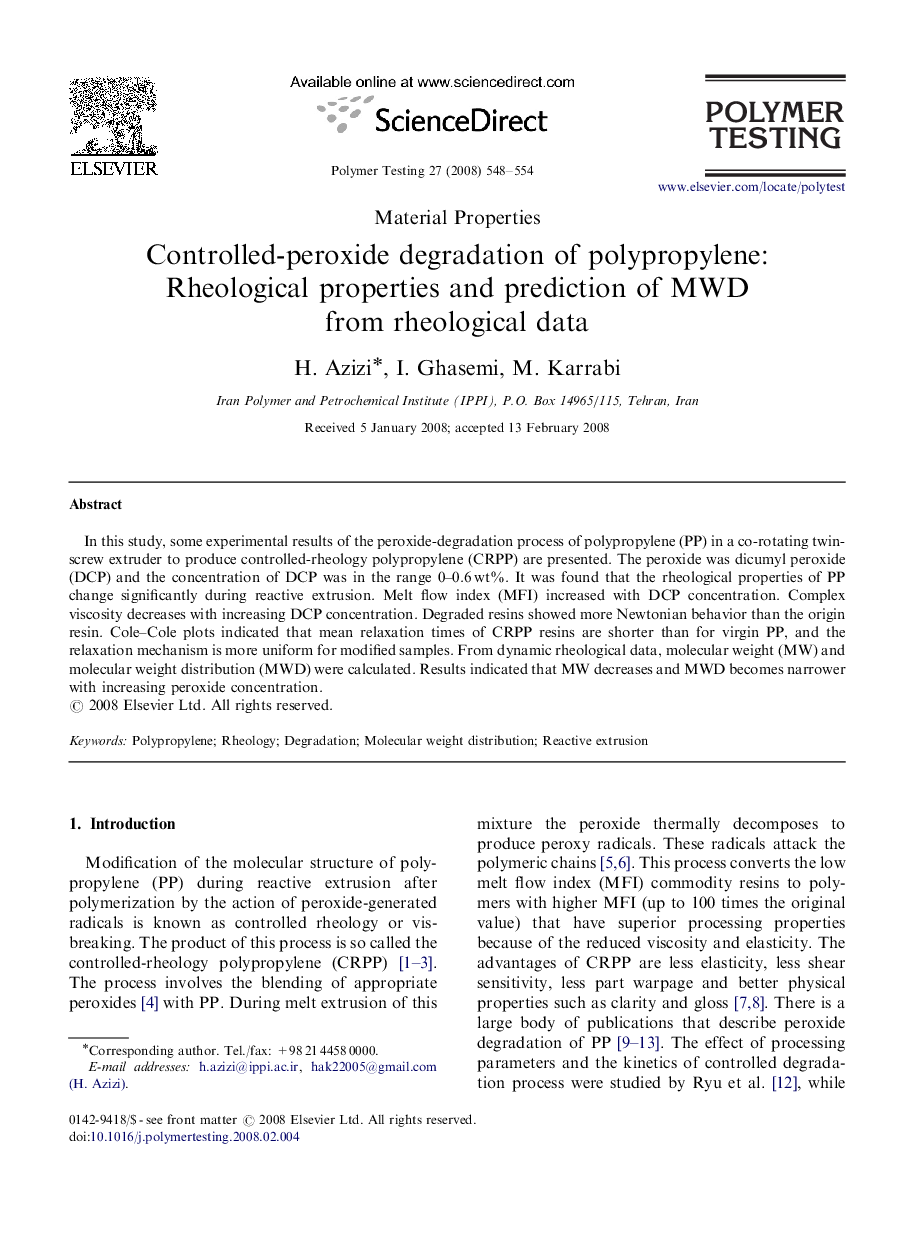| Article ID | Journal | Published Year | Pages | File Type |
|---|---|---|---|---|
| 5207581 | Polymer Testing | 2008 | 7 Pages |
Abstract
In this study, some experimental results of the peroxide-degradation process of polypropylene (PP) in a co-rotating twin-screw extruder to produce controlled-rheology polypropylene (CRPP) are presented. The peroxide was dicumyl peroxide (DCP) and the concentration of DCP was in the range 0-0.6Â wt%. It was found that the rheological properties of PP change significantly during reactive extrusion. Melt flow index (MFI) increased with DCP concentration. Complex viscosity decreases with increasing DCP concentration. Degraded resins showed more Newtonian behavior than the origin resin. Cole-Cole plots indicated that mean relaxation times of CRPP resins are shorter than for virgin PP, and the relaxation mechanism is more uniform for modified samples. From dynamic rheological data, molecular weight (MW) and molecular weight distribution (MWD) were calculated. Results indicated that MW decreases and MWD becomes narrower with increasing peroxide concentration.
Related Topics
Physical Sciences and Engineering
Chemistry
Organic Chemistry
Authors
H. Azizi, I. Ghasemi, M. Karrabi,
